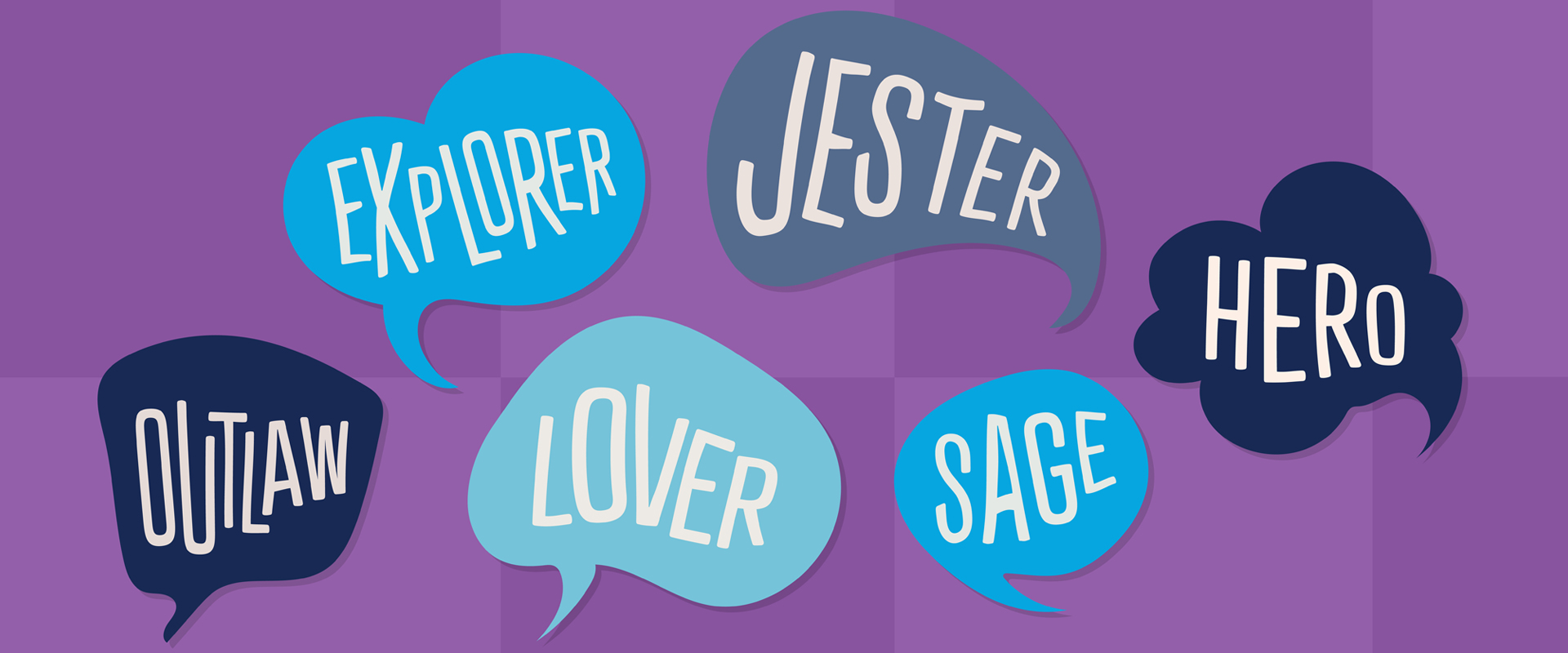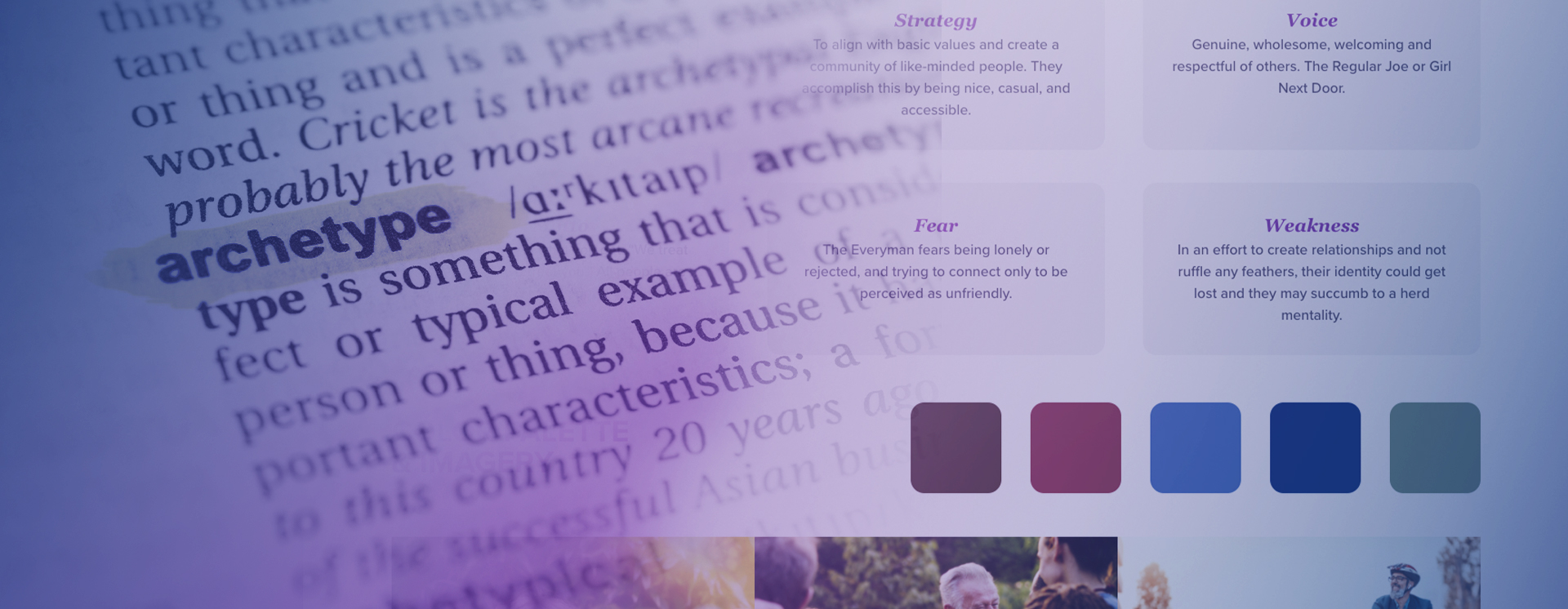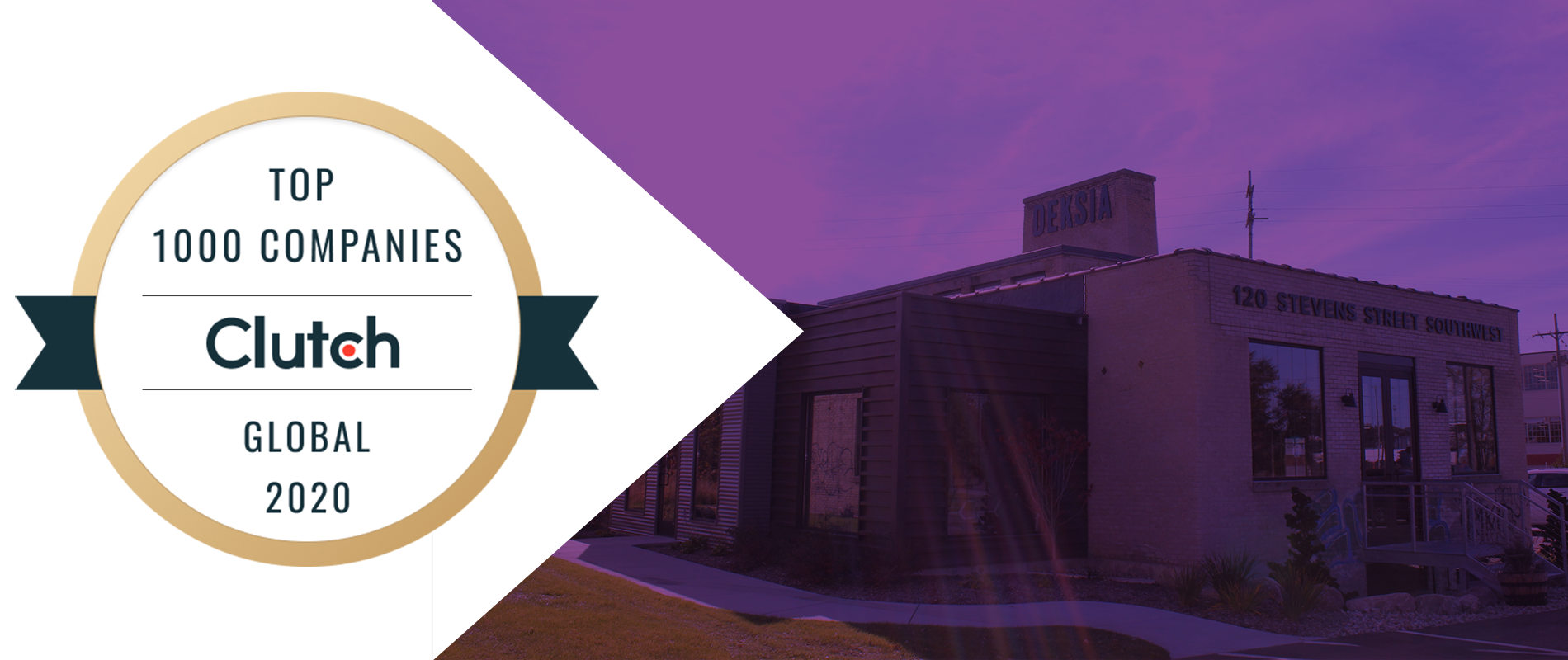The 12 Most Common Brand Personalities
What brand archetype does your brand fall under?
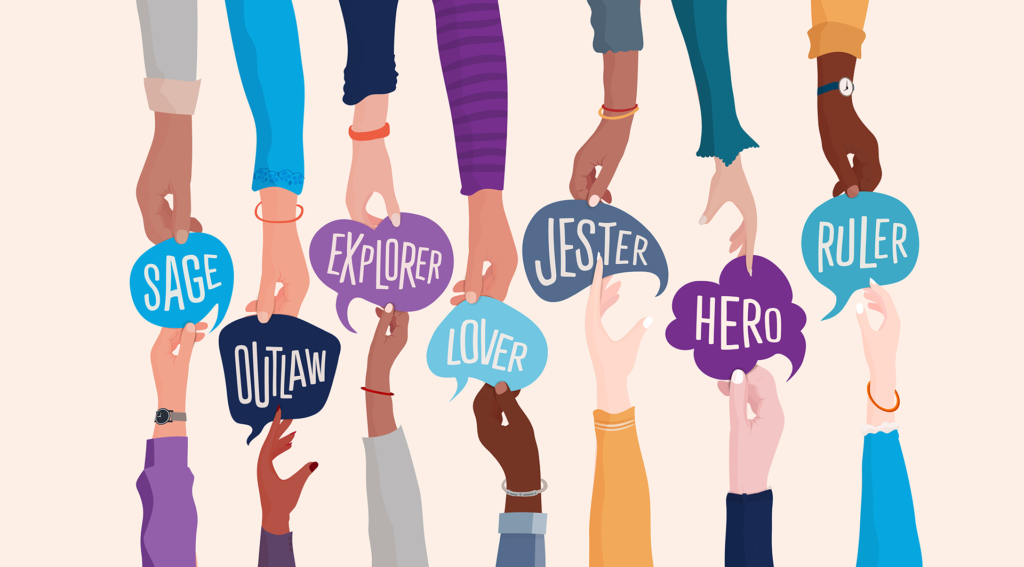
The strongest brands today all have one thing in common: a distinct personality. Think about Nike, Coca Cola, Charmin… each brand has its own sets of behaviors and characteristics that you instinctively recognize and compartmentalize.
Brands that communicate most effectively connect powerfully and deeply with the subconscious of your audience(s), and that’s one of the most powerful tools for achieving your sales and marketing goals.
Are you familiar with the term “collective unconscious”? Psychologist Carl Jung developed this theory that all human beings shared access to one massive invisible bank of mental patterns, tendencies, and information derived from ancestral memory and experience. From observing our collective unconscious, Jung mapped out the 12 most common patterns or “archetypes” of human behavior that show up repeatedly throughout history, and are deeply-rooted personalities in human nature. We instinctively understand them.
Just like people, every business’s brand falls under one or more of the 12 archetypes: caregiver, ruler, creator, innocent, sage, explorer, outlaw, magician, hero, lover, jester, or everyman. None of these are better or worse than the others; they are simply a method to identify, maximize, and utilize how you’re being perceived by your customers.
When your audience has pre-wired receptors in their brains that“fit” the shape you give your Brand Character, they feel like they know your brand in the way they know a person. It just makes sense to them. And they feel a powerful attachment they can’t quite explain.
Keep reading to meet and explore the 12 archetypes. You just might discover what archetype best fits your business!
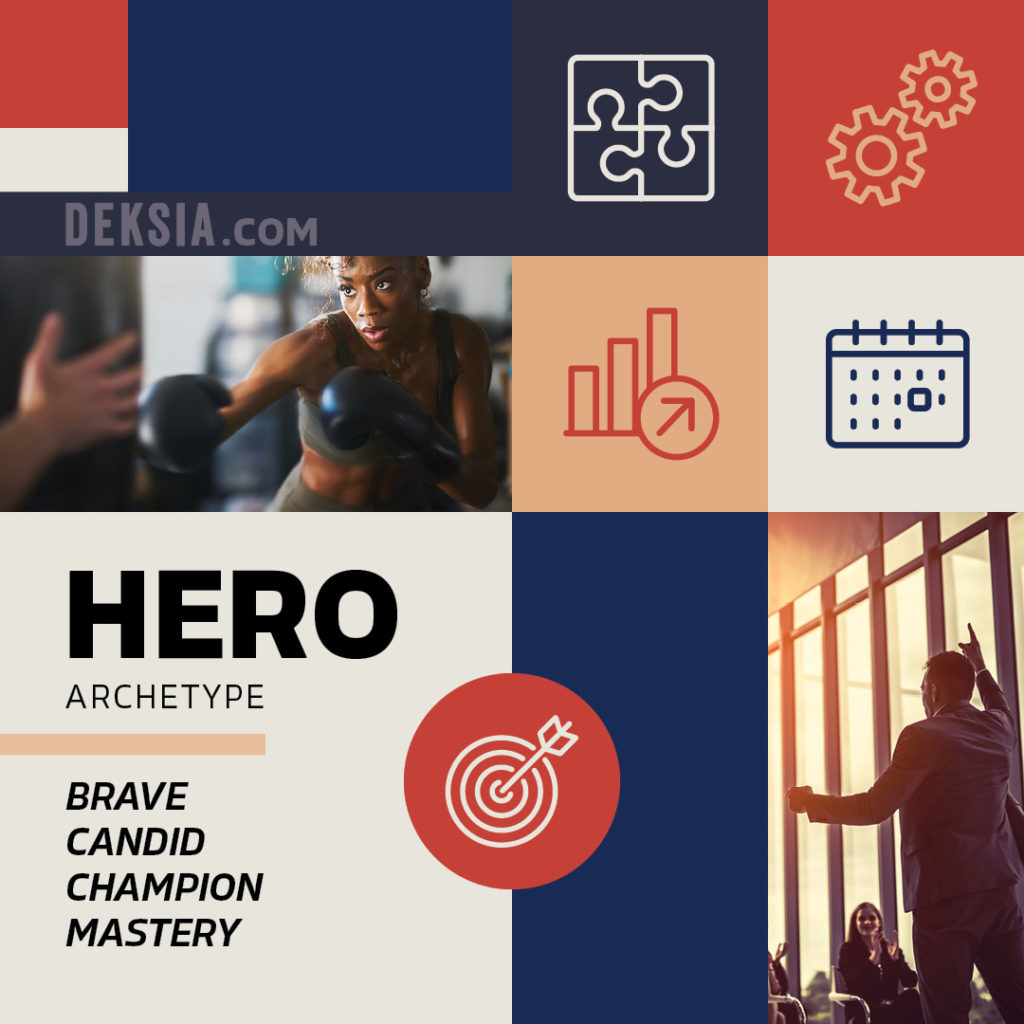
The Hero
Courageous, bold, inspirational. Accepts a challenge with determination and a will to win. Won’t rest until the day is saved.
The Hero archetype is known to be strong, inspiring, and good-willed. A hero is obsessed with saving the day and making everything better for others. The hero is a protector and a fighter, and won’t rest until the goal has been achieved. They are passionate about their work, and they are driven to help everyone rise to the occasion, overcoming their problems, and achieving their goals.
From Hercules, Star Wars, Lord of the Rings, your local firefighters, and your mom, the Hero archetype is one of the most common archetypes. Think of the hero in your favorite story or fairy tale; likely, they are likable, courageous, and seeking to change the world.
Nike is a perfect brand example of a Hero, always encouraging its customers to rise to the occasion, whether through its slogan or advertisements.
The Hero’s gift: inspiring courage and achievement by overcoming adversity.
Biggest fears: failure, weakness, vulnerability.
Motto: when there’s a will, there’s a way.
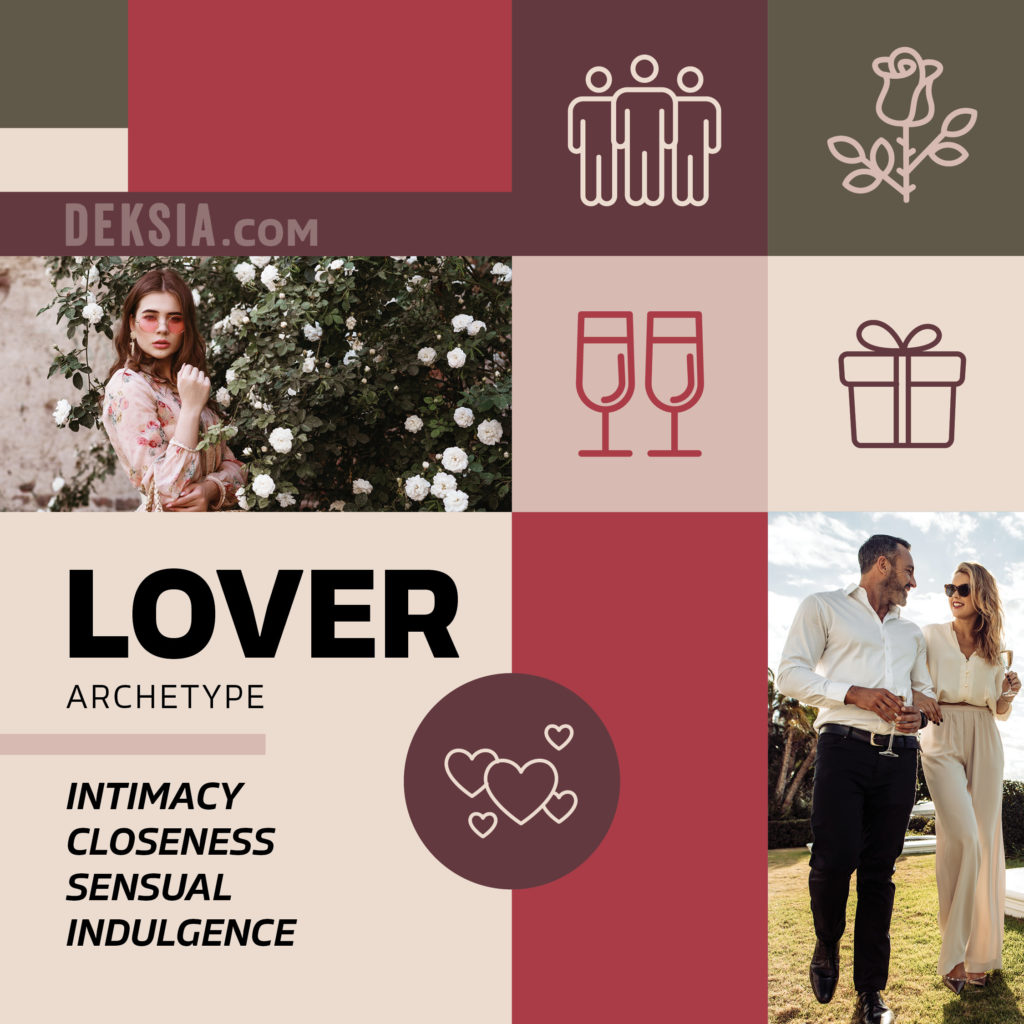
The Lover
Creates intimate moments. Inspires love, passion, romance, and commitment.
Lover brands are empathetic, passionate, receptive, gentle, and kind-hearted. They are driven by their emotions and have a natural desire to connect on a deeper level. Lovers are spiritual in nature, and are concerned with making others feel confident, loved, noticed, attractive, and supported. They foster beauty and celebrate intimacy.
Lovers desire to create experiences and long-lasting memories. They use empathy and personal stories to evoke emotion and relate on a deeper level. For example, brands like Godiva and Hallmark are considered Lover brands because they supply their customers with emotional support and promote self-care and intimacy.
The Lover’s gift: Providing sensuous experiences, and making others feel good about themselves.
Biggest Fears: Being alone, disconnected.
Motto: It’s all in the way that it makes me feel.
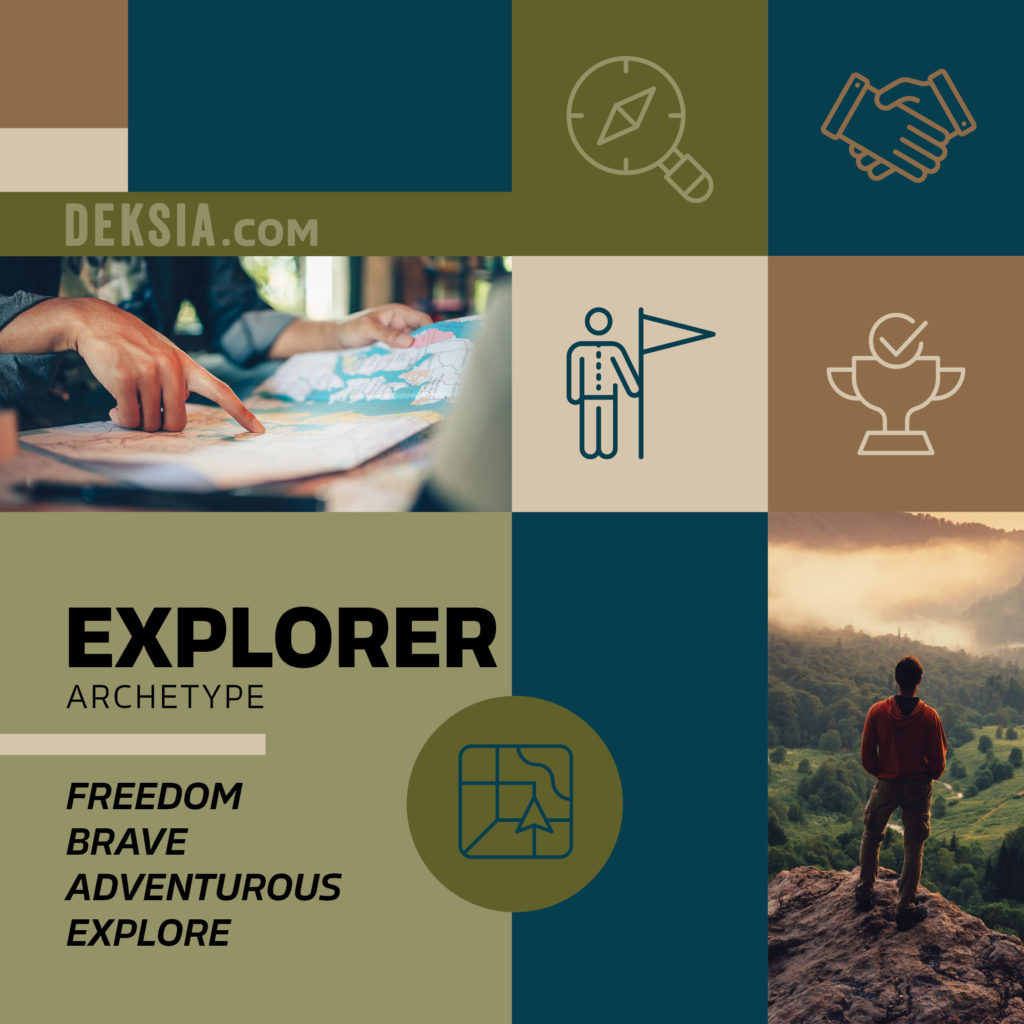
The Explorer
Inspired by travel, discovery, risk, and the thrill of embarking on new journeys.
The Explorer encourages others to be free and to step outside of their comfort zones. They call you to seek adventure and to discover more about yourself and the world. A company that is more free-spirited and adventure-oriented might be the Explorer. Any brand which promotes a physical or spiritual journey, emphasizing self-exploration and curiosity, could be considered a match.
Jeep is a prime example of a brand that encourages its client base to chase freedom and, quite literally, find their own path. Another common Explorer might be a company that sells equipment for outdoor activities like kayaking or hiking.
The Explorer’s gift: Inspiring innovation, to push boundaries with a pioneering spirit.
Biggest Fears: Monotony, being trapped.
Motto: Not all who wander are lost.
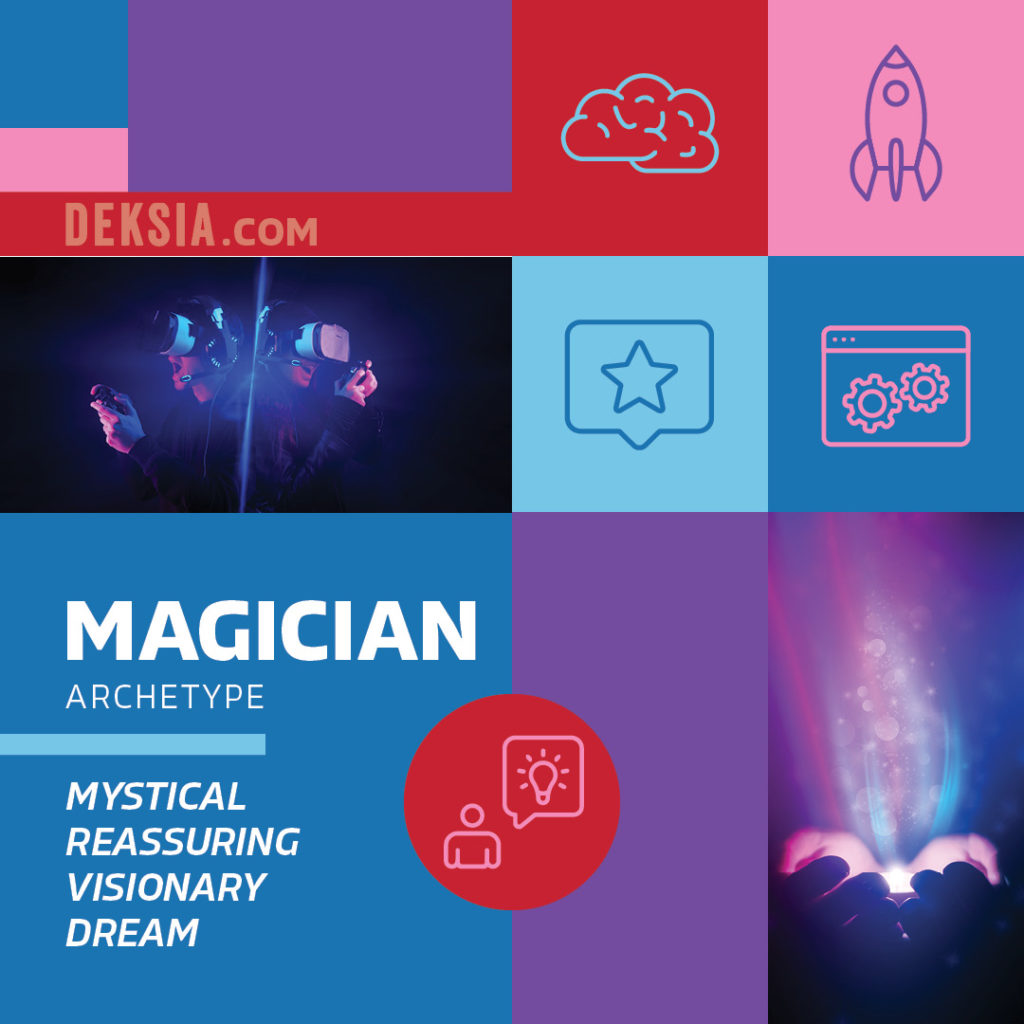
The Magician
Wise, thoughtful. reflective. Making dreams a reality.
Like the wise elder, or the mentor, the magician is always listening, always understanding, and always bestowing enlightenment and solutions to seemingly impossible problems.
Magician brands are meant to entertain, push the boundaries of reality, and give hope to the masses. They use the power of their products to make the world a more positive place, inciting curiosity and wonder in their clients.
See Disney, for example: made to entertain and enchant, building their brand off of being “the happiest place on Earth”. This is a fitting aspiration for other Magician brands who want to accomplish what Disney has through its television, parks, and merchandise.
The Magician’s gift: Making dreams come true, breaking the boundaries of what’s possible.
Biggest Fears: Self-doubt, negative consequences, mental blocks (can’t find new ideas).
Motto: Nothing is impossible. The word itself says “I’m possible”.
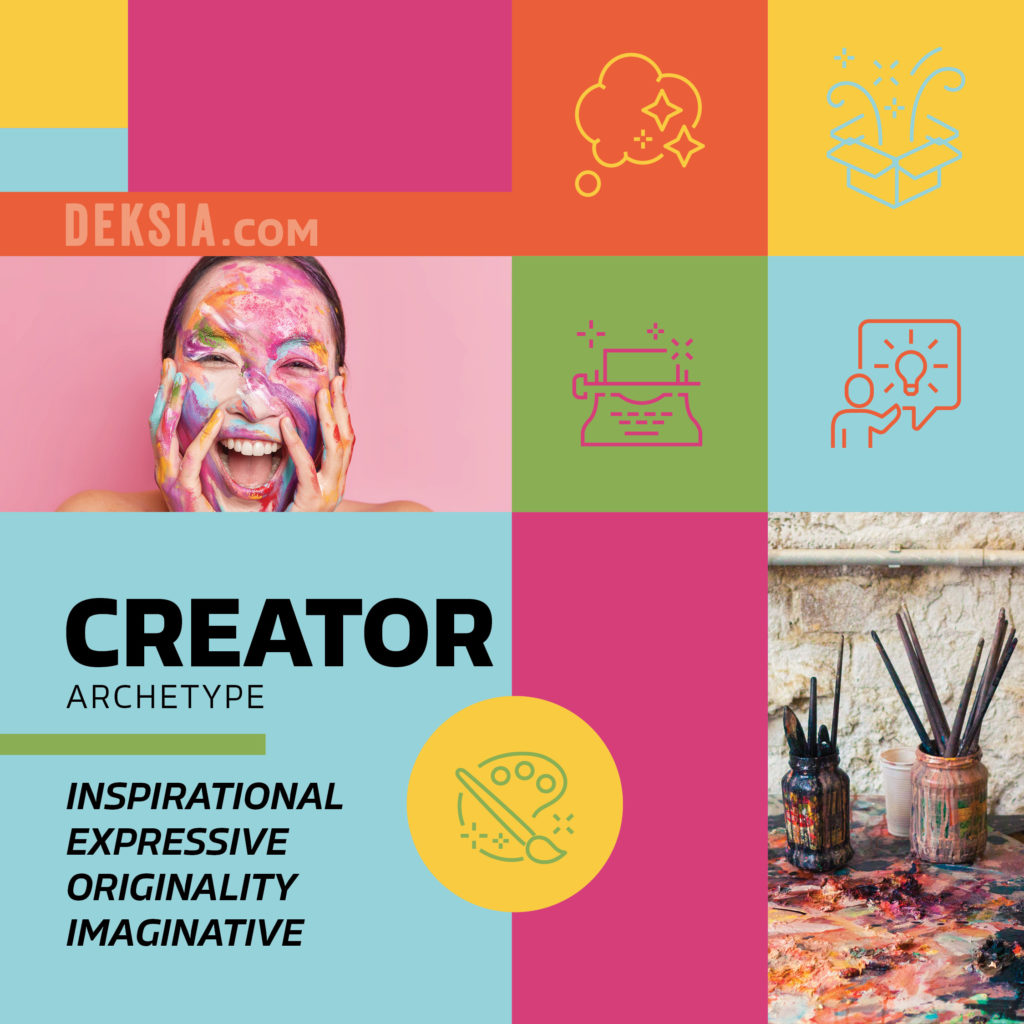
The Creator
Naturally expressive, inventive, original, and imaginative.
The Creator, aka Artist, is a visionary and a non-conformist. They extol the creative process and speak with excitement, description, and visual metaphor. Any brand that creates something which didn’t exist before could be considered a Creator.
Crayola makes colors, whereas Youtube puts content on the Internet, but both brands have something in common: they provide the world with products that have never been seen before.
The Creator’s gift: Inspiring creativity and authenticity.
Biggest Fears: Being unoriginal, lack of inspiration, criticism, mediocre work.
Motto: If it can be imagined, it can be created.
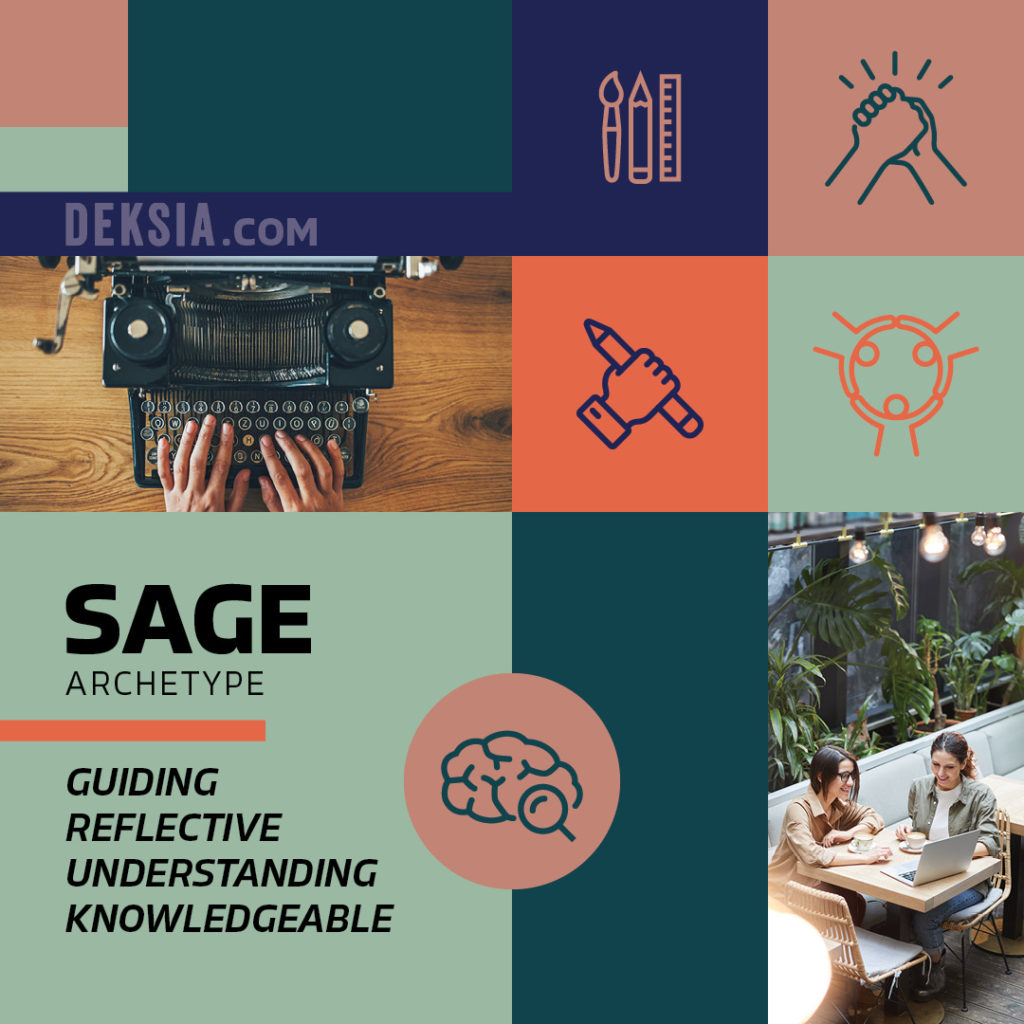
The Sage
To find the truth, to know what’s real, and to understand why.
A Sage is passionate about gaining more insight into the world and understanding how it relates to them. A brand that identifies as a Sage must be wise, honest, and give guidance to its clients.
High-caliber news outlets, such as The New York Times, would be considered Sage brands because they help clients to reflect and lead them through an often deceptive world. Being a Sage brand is about helping clients to be fair, knowledgeable, and grow as people.
The Sage’s gift: Sharing knowledge to illuminate new perspectives and change the world.
Biggest Fears: Being proven wrong, misunderstood, misled.
Motto: The truth will set you free.
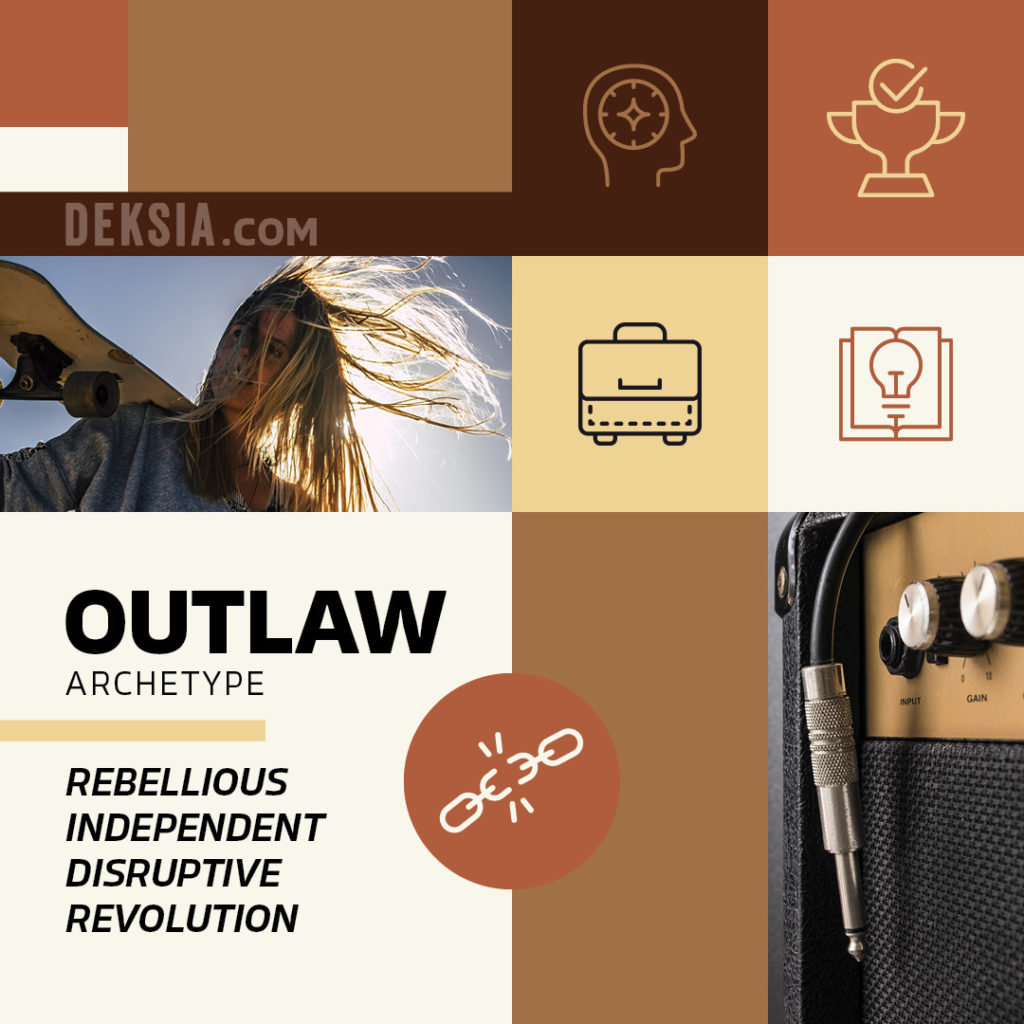
The Outlaw
Radical freedom, breaking free from the status quo.
The Outlaw is a revolutionist who takes a stand against living in conformity. The Outlaw encourages doing something out of the ordinary in order to find your own truth. The Outlaw archetype reflects a brand more on the wild side, a brand devoted to liberation and change.
These brands represent the people and their spirit and should resemble counterculture. Two famous brands that would be Outlaws would be Harley-Davidson and MTV, both rebellious in nature.
The Outlaw’s gift: Disrupting existing structures, and promoting loyalty.
Biggest Fears: Conformity, being controlled.
Motto: Rules are made to be broken.
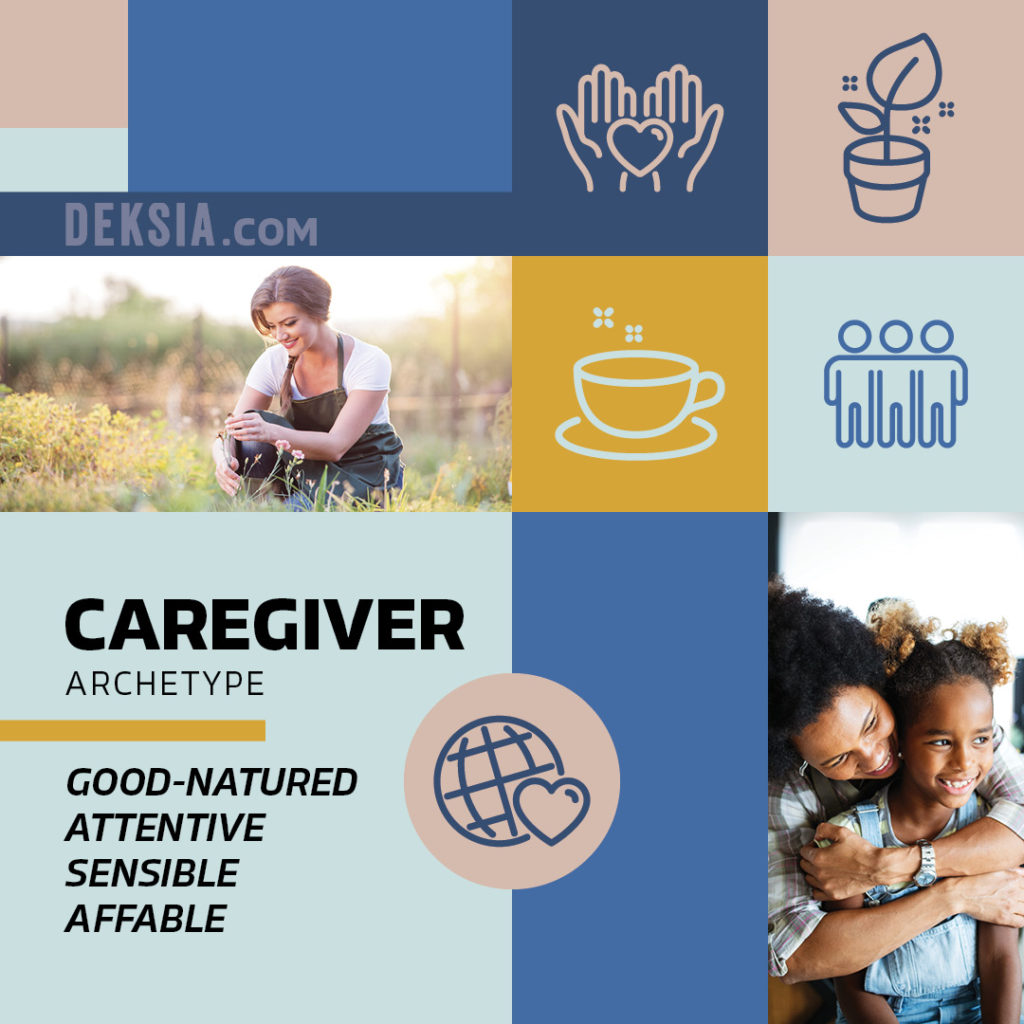
The Caregiver
Compassionate, nurturing. Takes care of others and helps them get to where they’re going.
The Caregiver is devoted to helping others, often the less fortunate, to have the support and care that they need to have a happy and successful life. The Caregiver archetype fits brands that are tender, attentive, and well-liked.
Caregiver brands are not scandalous or selfish. Instead, they serve the needs of their clients with a gentle hand. Johnson & Johnson and Unicef are two prime examples of companies that have built their entire brands off of caring for others.
The Caregiver’s gift: Making people feel safe, secure, and looked after.
Biggest Fears: Becoming selfish, ungrateful, feeling helpless.
Motto: Be kind to others for no reason.
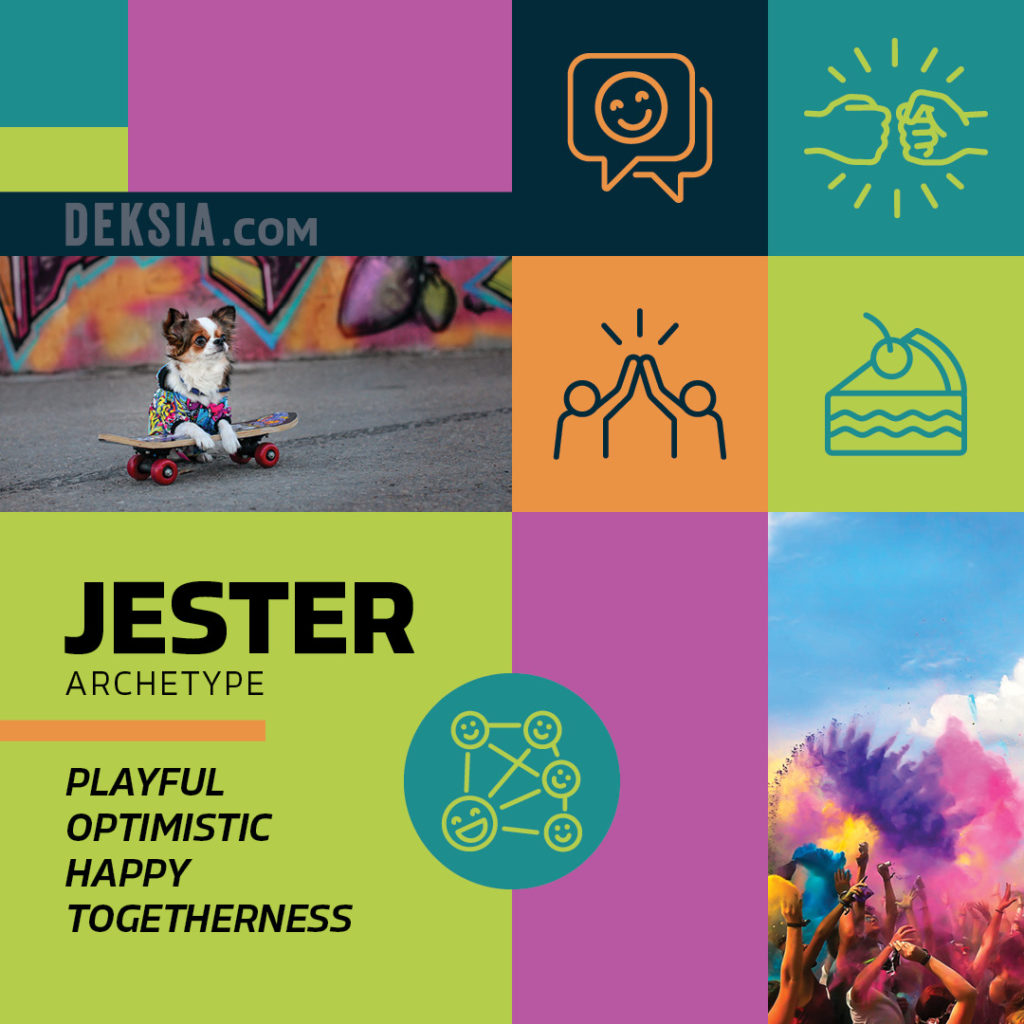
The Jester
Brings joy to the world through humor, fun, irreverence. Often likes to make mischief.
The Jester is playful and innovative. They use wit and humor to provide people a happy distraction from the stresses of everyday life. Jester brands give the world the laughter it needs due to their fun-loving and lighthearted nature.
Ben & Jerry’s shows its personality as a Jester through its ice cream’s funny names and packaging. Ben & Jerry’s is not high-stakes nor serious; it merely adds color to its customers’ lives. This is ultimately what a Jester brings to the table: a sense of cheer.
The Jester’s gift: Making people smile and laugh, encouraging them to take life less seriously.
Biggest Fears: Vulnerability, being bored, being too serious.
Motto: Life’s too short to take so seriously.
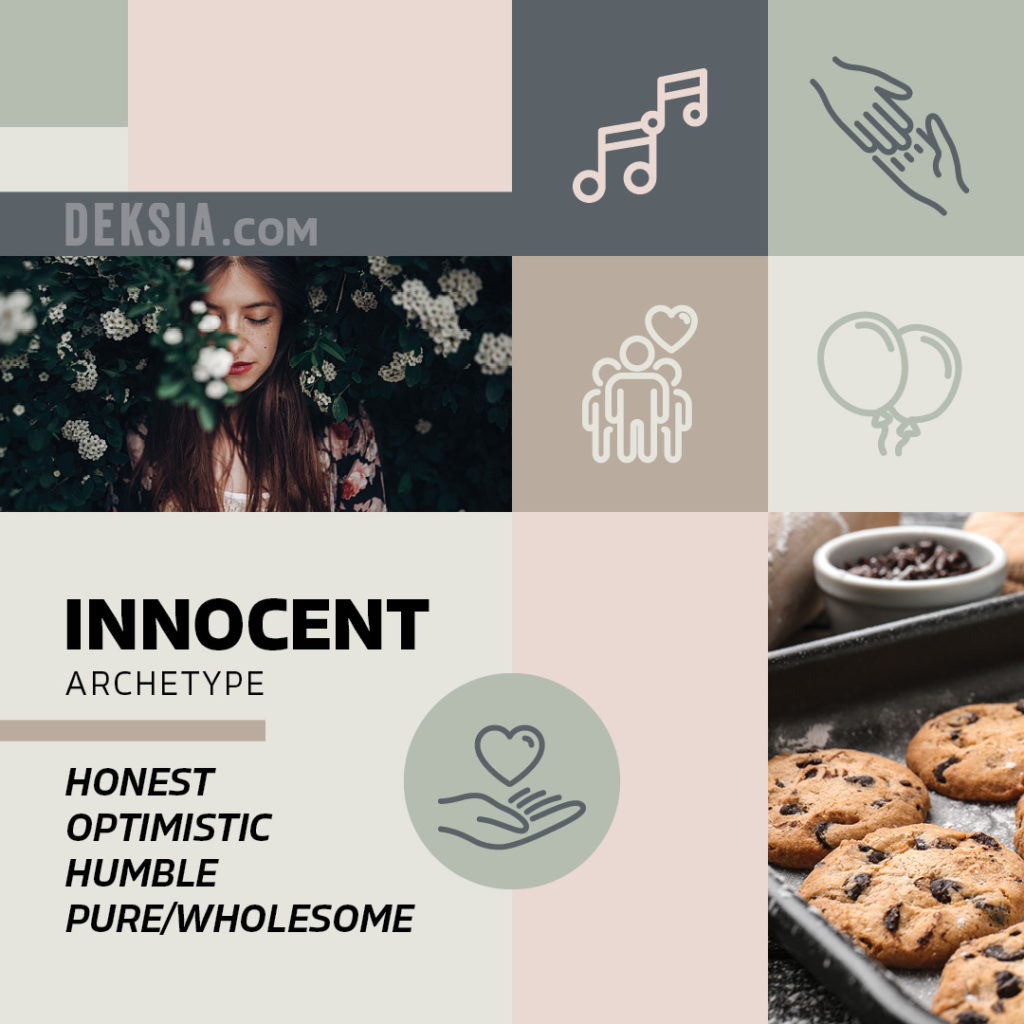
The Innocent
Exhibits happiness, goodness, optimism, safety, and youth.
The Innocent views the world through an optimistic eye, helping others to learn the ropes and to overcome negative things to find tranquility. Innocent brands, not to be confused with Caregivers, are also kind and affable but lack the motherly qualities that Caregiver brands have. Instead, Innocents are wholesome and hopeful.
Coca-Cola, a kid-friendly beverage with slogans like “Open happiness,” is a good example of an Innocent brand.
The Innocent’s gift: Spreading and reestablishing joy and purity in a dark world.
Biggest Fears: Doing something wrong/bad that will result in punishment.
Motto: Don’t worry, be happy.
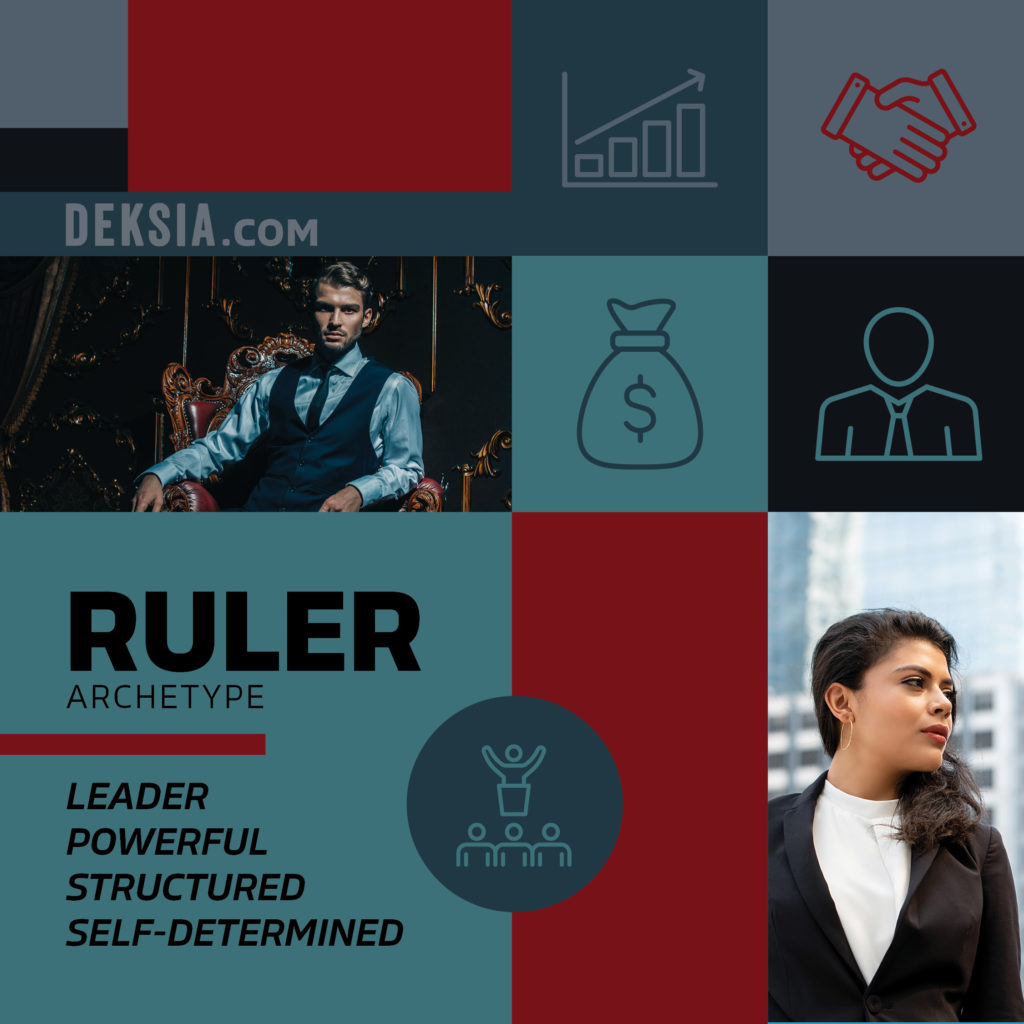
The Ruler
Creates order from chaos. Likes organization, control, and management.
The Ruler exercises power and influence to provide solutions for people that create prosperity and wellness. Rulers are very plan-oriented, needing an organized system or process to ensure that success is achieved and chaos is avoided.
Brands like Rolex and Rolls Royce have one primary purpose: to make their customers feel powerful and on top of the world. Rulers are often somewhat exclusive brands, either expensive or only relevant to a few. However, they are extremely powerful.
The Ruler’s gift: Fostering stability and trust, and creating high-quality solutions that lead the way.
Biggest Fears: Entropy, chaos, being displaced.
Motto: Heavy hangs the head that wears the crown.
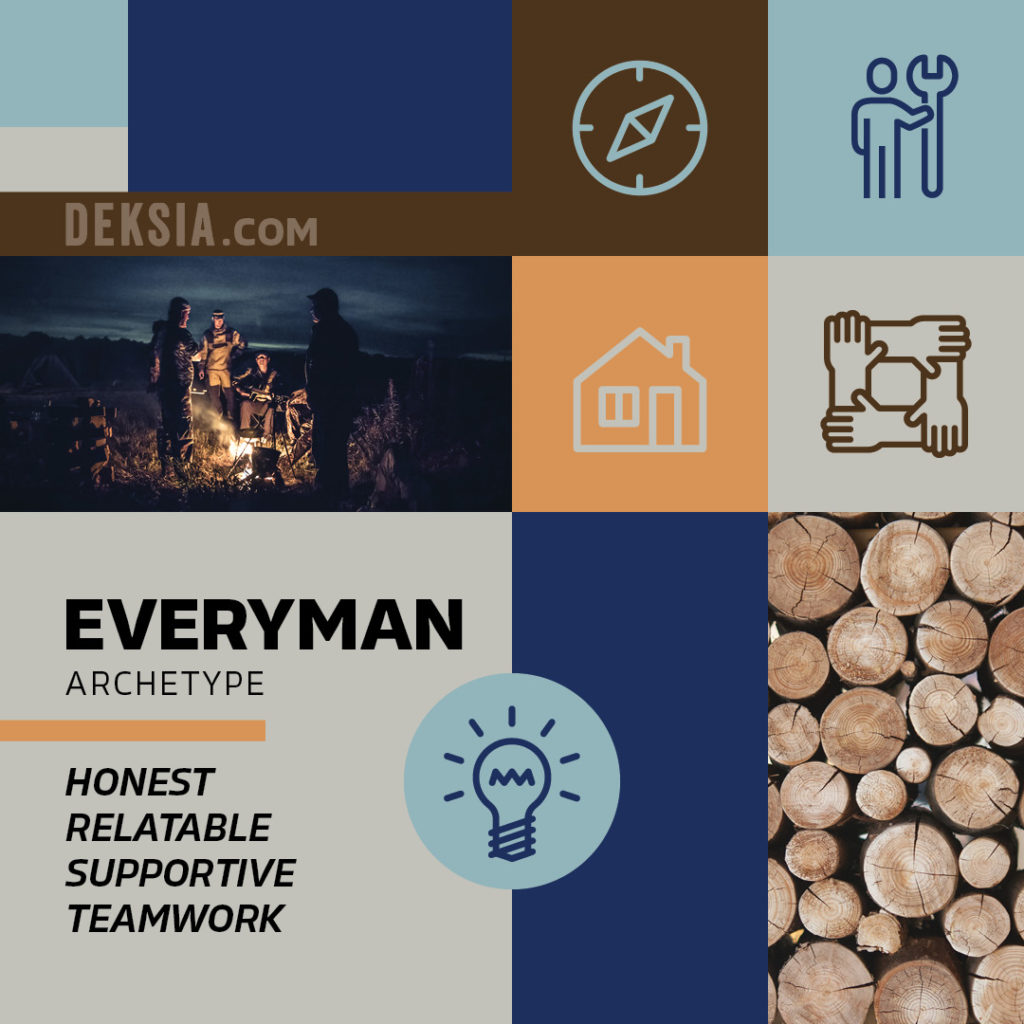
The Everyman
Seeks connection and belonging, is recognized as supportive, faithful, and down to earth.
The Everyman archetype is modest, hardworking, and just “one of the people”. They align with basic values and tend to create a community of like-minded people. They find success through their casualness and welcoming, respectful nature. The Everyman desires to enjoy the simplest things in life, and to do so with the support of a community that cares for and looks after them.
Everyman brands, like Budweiser, appeal to a wide range of people because they are relatable and dependable. Other examples of brands that fit the Everyman archetype might be IKEA or Discover, which cater to your everyday people and do the jobs people need help with.
The Everyman’s gift: Bringing safety, comfort, and trust to an otherwise unstable or unfriendly environment/decision.
Biggest Fears: Being lonely, rejected, perceived as unfriendly.
Motto: We treat you like you’d treat you.
So, now you know the 12 brand archetypes, how do you fit into the mix? As an all-conquering and inspiring Hero, a bewildering magician, a wise and noble Sage?
Knowing your archetype is the first step in creating your brand story. The real challenge lies in understanding how to integrate it into your brand and your marketing. At Deksia, we help clients create meaning from their archetypes every single day. To learn more, schedule a FREE 15-minute meeting with the experts at Deksia.
